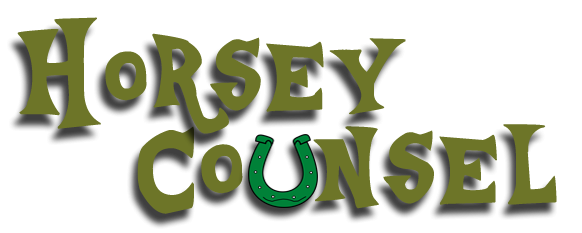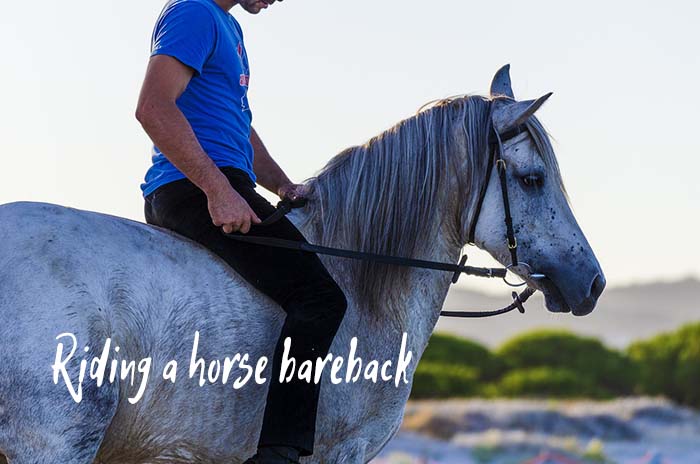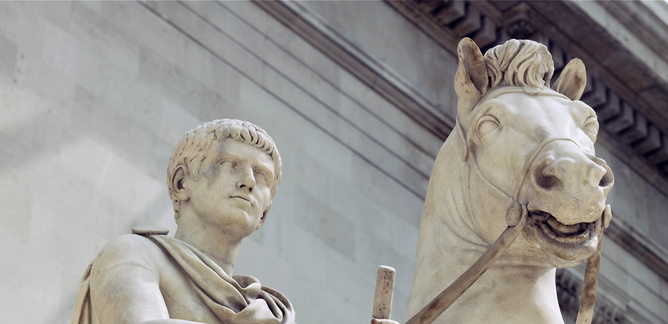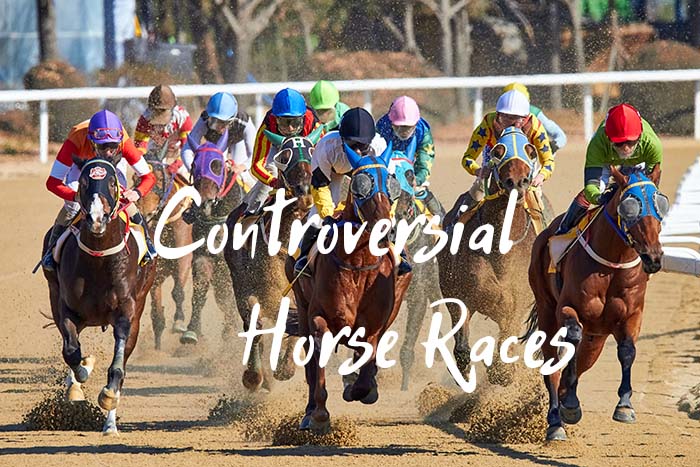10 Steps to Overcome Your Fear of Horses That Actually Work
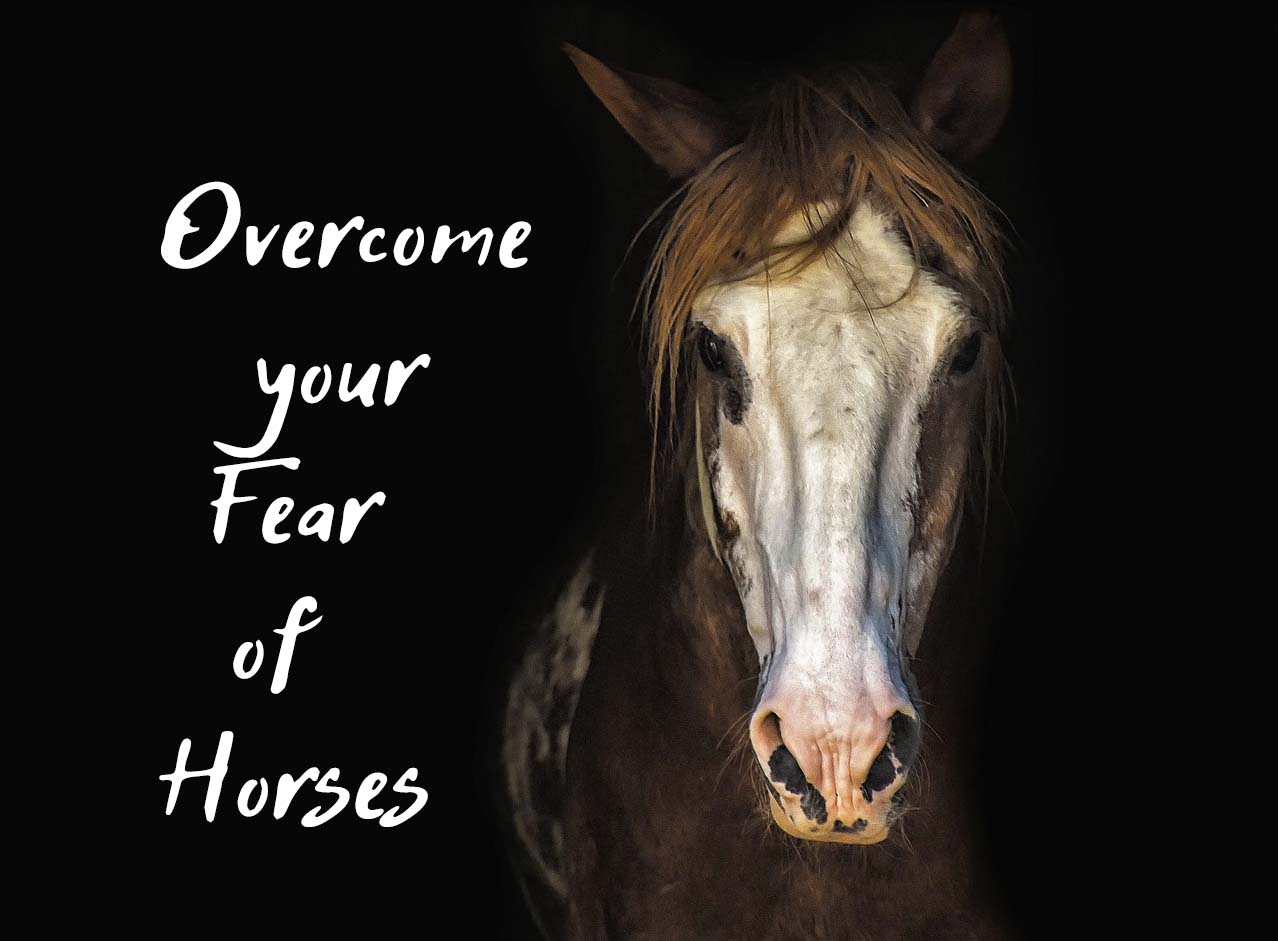
Fear of horses is natural. But it can be overcome.
Most horses are gentle and well-behaved, but even so, they can look scary for someone who’s not used to being around large animals. I grew up around them and I never got intimidated by them too much, but that’s not the case for most people. I still remember when one of my best friends came over and tried to touch a horse for the first time – she almost panicked.
Horses are large, and they’re quite powerful when compared to humans. It’s only natural to be afraid of them if you’re not used to being around them. Overcoming your fear of horses can be a simple task, or it can be incredibly challenging. It all depends on your character, and whether you’re willing to go out of your comfort zone. In this article, I’ve put together a list of steps that can help you get over your fear of horses. Here’s a quick breakdown:
- Lean on a more experienced horseman to help you overcome your fear of horses.
- Learn as much as you can about horses and your fears will gradually diminish.
- Understand what causes this fear.
- Face your fear of horses with small steps. Don’t rush into it!
- Wear protective equipment. It really helps.
- Form a bond with a gentle, experienced horse.
- Improve your own strength and gain more confidence.
- Stay as relaxed as possible as you interact with horses.
- Make new equestrian friends.
- Think positive and don’t get discouraged even when things look bad.
Learn from the experience of others.
Trying to overcome your fear of horses all by yourself is a noble goal and a perfectly attainable one. However, leaning on a more experienced horseman to guide you through it is a much better idea and one that has a much higher chance of success. An experienced horseman will know where to start, and his presence will help you feel more at ease in a potentially stressful situation.
Moreover, if something does go wrong as you attempt to overcome your fear, he’ll know exactly how to handle it. Really, working with someone experienced in horsemanship is the best way you can go about overcoming your fear of horses.
If you have the time and money, I’d definitely recommend spending some time with a riding instructor. These people know exactly how to handle beginners, and people that are overcome by fear in the presence of horses. Few people manage to become decent equestrians all by themselves. They invested plenty of time and effort into improving their skills both in the saddle and on the ground.
A riding instructor will help you with your posture and your gestures. He’ll also teach you how to approach a horse, how to read its body language, and how to react to its movements. As you learn, you’ll gradually get over your fear of horses. It really does work!
Learn as much as you can about horses.
I’m not saying that you should learn everything, but it’s worth finding some horse-related topics that interest you and learning as much as you can about them. Maybe you’re into horseback riding, horse racing, or even horse movies. There are quite a few horse quotes that you can learn, or you can catch up on the history of the world’s most famous horses.
As you learn more and more about these beautiful animals, you’ll come to understand why they act the way they do, and what triggers the behaviors that you’re afraid of. You’re lucky: these days, knowledge is just a click away. There are countless YouTube videos that can teach you everything you need to know about horses. If you prefer to read, there are plenty of books too.
Touching on what I’ve said earlier, spend time with a riding instructor and learn everything you can from him. Don’t be afraid to ask questions, even if they might seem silly at first. Understanding a horse’s behavior and patterns is not something to be taken lightly.
No two horses are the same – they each have their own personalities and unique traits. They also have things in common, things that they like and things they dislike universally. Soak up as much knowledge as you can about horses and you’ll soon realize that they’re not the intimidating and frightening animals that you thought they were.
Understand what causes this fear.
Not everyone fears horses for the same reasons. Most people are intimidated by the size of this animal and its renowned strength. However, it’s worth noting that all those videos you’ve seen and all those stories you’ve heard about people being kicked or bitten by horses are rare and far between. Most of the time, horses behave violently because they’re being treated badly.
It’s important to figure out why you’re afraid of horses, to begin with. Have you had a bad experience with a horse? Have you seen someone getting attacked by one? Consider that it might just all be in your head. Alternatively, think about other large animals such as cows – are you afraid of them too?
Discovering what caused you to be afraid of horses in the first place is key to overcoming your fear of them. You might have to take a leap of faith, and you might have to get out of your comfort zone. Something as small as feeding a horse, giving it water, or brushing it can help you become much more comfortable in its presence. Riding a horse is even more helpful, but you don’t have to do that yet if you’re still too afraid.
Take small steps, but be consistent.
Getting over this fear is going to take a bit of time. Some people get over it relatively quickly, while others need months of work. Don’t ask too much of yourself, and don’t set your expectations too high. Set small goals that you can do every day, and set a really big one for the future.
Even if you stood a few feet closer to a horse than you did yesterday, that’s still a win. Leading a horse or brushing it represents true progress, and riding it without fearing that you’ll get thrown off is a true breakthrough. If you rush into it, you’re much more likely to give up later down the road.
If you become stressed, the entire experience becomes uncomfortable, and you won’t be as eager to try again the next day. Small steps with consistent practice is the best way to go about this.
Wear protective equipment.
The main thing you’re worried about when working with horses is that you’re going to get injured somehow, right? Wearing proper horse riding gear will help diminish your fears by making you feel safer. For instance, a good horse riding helmet will keep your head safe in the event of a fall. Good horse riding boots will ensure traction as well as protection, while a reflective vest will improve your visibility for motorists.
I wouldn’t recommend riding on the side of a road if you’re just trying to overcome your fear of horses. However, your riding instructor might ask you to do it. Wearing proper gear should become second nature for horse riders, but you don’t really have to wear it when you’re just spending time around a horse.
If you want to do it anyway, nobody’s going to stop you. Wear a helmet as you lead your horse if that makes you feel safer. Just remember to lead it without wearing one at some point in the future. Protective gear is meant to protect us, and we should use it when the situation dictates. We shouldn’t be dependant on it by any stretch.
Pick the right horse.
As you work through your fears, you’ll likely work with a single horse, at least at first. This way, you’ll get to know that horse, learn its quirks and habits, and you’ll know exactly how it will react to certain stimuli. It’s very important to pick the right horse for the job. A kind and gentle horse, and a predictable one. A lesson horse is your best bet, as these horses were trained specifically to work with shy or fearful riders.
Lesson horses are easy to handle. They’re great if you want to learn the basics without fearing that you’ll be punished for getting it wrong a few times. Some people fear horses simply because they don’t know how to control them. They feel helpless, and helplessness leads to fear.
Lesson horses are easy to control, but that doesn’t mean that you won’t need riding lessons. It’s definitely a good idea to lease a horse like this and just learn how to behave around it. Learn how to ride it and how to control it as well, and then maybe move on to buying your own horse. This way, you’ll have a chance to overcome your fears before making a commitment.
Improve yourself and become more confident.
Sometimes we fear larger animals because we don’t have enough confidence in our own strength. Furthermore, controlling a horse and riding it properly does require a fair amount of strength and stamina. A horse will know if you’re not strong enough for the challenge, and it won’t respect you as much.
It’s always a good idea to work on your fitness levels as you train to become a better horseman. As far as getting over your fear of horses is concerned, this will help you become more confident, and it will make the animal appear less intimidating. It takes time and patience, true, but we’re in this for the long haul, remember?
Focus on exercises that improve your core strength and posture. Riding can be tiresome even for experienced equestrians. It requires balance and quick reflexes. Work on bettering yourself and all of your fears will gradually diminish.
Stay relaxed as you interact with horses.
It’s a well-known fact that horses tend to feed off our emotions. They can actually sense when we’re stressed or tense, and this causes them to become tense as well. Ask any experienced equestrian and they’ll tell you that working with horses also involves working on yourself. If you want to get rid of your fear and be able to interact with a horse in a meaningful and rewarding manner, you’ll have to keep your emotions in check.
The best way to do this is to focus on your breathing and to be mindful of your body language. This will make you appear more approachable to a horse. It will also help you to become more confident, calmer, and just nicer to be around. If you’re riding a horse being tense and stressed, you won’t be able to give proper aids to that horse, and you’ll probably make some mistakes that could have easily been avoided.
Meditation, breathing exercises, even yoga can help you get closer to achieving inner balance. You might not need to go all the way, but just staying relaxed and calm when interacting with horses can go a long way to helping you achieve your end goals.
Your friends can help you overcome your fear of horses.
Whether we’re talking about old friends or new friends, just having people around that you can confide in will give you a big boost in confidence while alleviating your fears. Friends bring you up when you fall down (maybe not literarily), and they can offer advice and encouragement when you need it the most.
Trying to tackle this challenge alone can be daunting. Even with a riding instructor, you’ll still need a friend or two to cheer you on as you progress. Making new equestrian friends is not mandatory, but it can definitely help. If they’re more experienced than you, all the better.
Don’t get discouraged. Think positive thoughts.
It may sound like a cliche, but thinking positive can have a tremendous impact on your mood and productivity. Maintaining a positive outlook is even more important as we’re trying to root out fear. Fear can be debilitating – it can make you feel like a failure, and it causes you to focus on the bad instead of the good.
Tackling fear is difficult and scary in itself. Only a truly brave person would even attempt to get over their fears. The fact that you’re here, reading this, and trying to improve yourself already says a lot about you and your character. Don’t forget to give yourself a pat on the back when you deserve it.
Focus on the small steps, on the things that you’re doing right. Don’t hesitate to praise your horse as well when it does something right. He’ll appreciate it even if he doesn’t have the words to say so. By making a habit out of thinking positively, you’ll be able to reach your end goals quicker. Don’t believe me? Just try to alter your way of thinking for a day and tell me how that impacted your productivity and progress.
What is a fear of horses called?
Officially, the psychological fear of horses is called Equinophobia or hippophobia. The first term represents a mix of equus (Latin word for horse) and phobia (Greek word for fear). The second word has Greek origins exclusively, as it was composed using híppos (Greek word for horses) and phobia (Greek word for fear).
People that suffer from this affliction can exhibit a number of symptoms such as panic, anxiety, trembling, shortness of breath, palpitations, nausea, or crying. These symptoms can be triggered by being in proximity to a horse or simply by thinking about one. It’s not uncommon for people suffering from equinophobia to be fearful of other hoofed animals such as mules or donkeys.
As for causes, hippophobia can be triggered by traumatic events during childhood such as being attacked by a horse or even falling from one. The phobia can also be caused by a simple fear of the animal. It can start out as a simple fear and gradually evolve into a full-blown phobia.
Can horses smell fear?
We know that horses and other domestic animals such as dogs can pick up on your emotions, but how exactly do they do that? Apparently, it’s all related to their sense of smell. Can horses smell fear, and are they influenced by it when they pick up on it?
It turns out that horses can smell fear, as people emit a particular chemosignal while experiencing specific emotions. Horses pick up on this chemosignal, interpret it, and then figure out how that person feels based on its composition.
Basically, horses can smell human emotions. Apart from fear, horses can also smell happiness. This was all discovered during a special study that involved scary movies, happy movies, and sweat pads. People wore sweat pads as they watched the two types of movies. The pads were then introduced to horses while researchers measured their heart rate and autonomic nervous system.
Horses pick up on our emotions but not through some unknown sense. They use their sense of smell, which is definitely more acute than that of humans.
